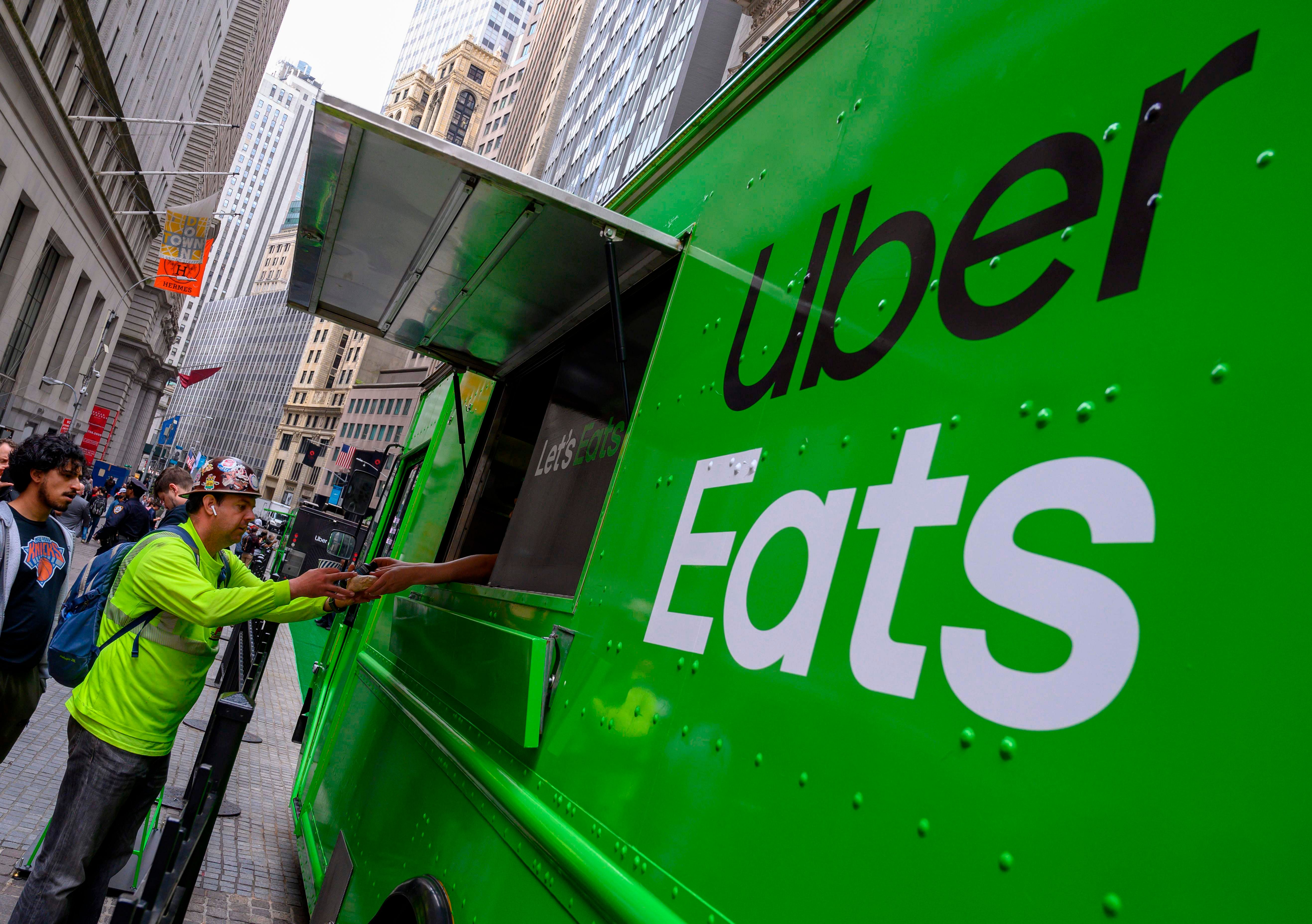
Uber Technologies Inc is in advanced talks to buy online food delivery company GrubHub Inc in an all-stock deal, according to a person familiar with the matter.
A deal could make Uber more competitive with market leader DoorDash.
The coronavirus pandemic has upended Uber's core business of paying freelance drivers to shuttle people from place to place. A merger of its loss-making Uber Eats restaurant delivery service with GrubHub shows how the Silicon Valley disruptor is scrambling to pivot in what promises to be a long period of business interruption by doubling down on its fastest growing business.
Shares of GrubHub jumped more than 36% to $17.05 while Uber's were up just over 6% to $33.60.
An Uber spokesman said the company does not respond to "speculative M&A." GrubHub, in a statement, did not confirm the talks but said "consolidation could make sense in our industry."
Based on what happened in previous technology and economic downturns, such a merger would be unsurprising, said Jesse Reyes, chief executive of J-Curve Advisors, who advises venture capital and private equity funds.
"If you can't beat 'em, eat 'em. It's a natural evolution of how these disruptive technologies go," Reyes said.
DoorDash had 42% share of meal delivery sales in March 2020, versus 20% for Uber Eats and 28% for GrubHub, data from analytics firm Second Measure showed.
Meal delivery services saw year-over-year growth of 24%, through the end of March, according to Second Measure.
The value of the deal was not disclosed.
GrubHub had a market capitalization of about $4.3 billion, while Uber was valued at nearly $55 billion as of Monday's close, according to Refinitiv data.
The two companies could reach an agreement as soon as this month, Bloomberg News reported earlier on Tuesday, citing people familiar with the matter. (https://bloom.bg/2LoVtoS)
The approach comes as revenue from Uber Eats surged more than 50% to $819 million on a yearly basis in the recently reported first quarter as restrictions imposed to curb the coronavirus forced eateries to shut their dining areas.
UberEats, which offers food delivery services in more than 6,000 cities worldwide, has been a drag on the company's bottom line since its inception in 2014 due to heavy spending on customer promotions and driver incentives.
Uber in January sold its Indian food business to local rival Zomato and earlier this month closed Eats operations in eight countries.
Last week, GrubHub said the restaurant industry is facing enormous challenges from the COVID-19 pandemic, and the company is using nearly all of its profits in the second quarter to generate as many additional orders for its restaurant partners as possible.
Uber "can wait and bit and probably get them cheaper. But it could be that you have a lot cats circling the same bowl," Reyes said.
"It (the deal) will definitely be scrutinized but I think it will pass. GrubHub and Uber will likely push back saying industry isn't profitable and need to consolidate to make it work," said Robert Mollins, an analyst with Gordon Haskett.